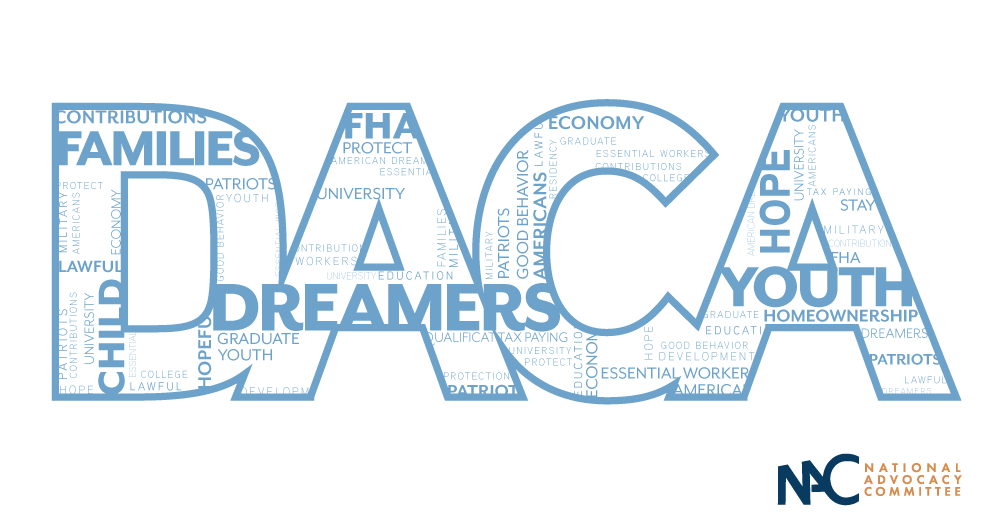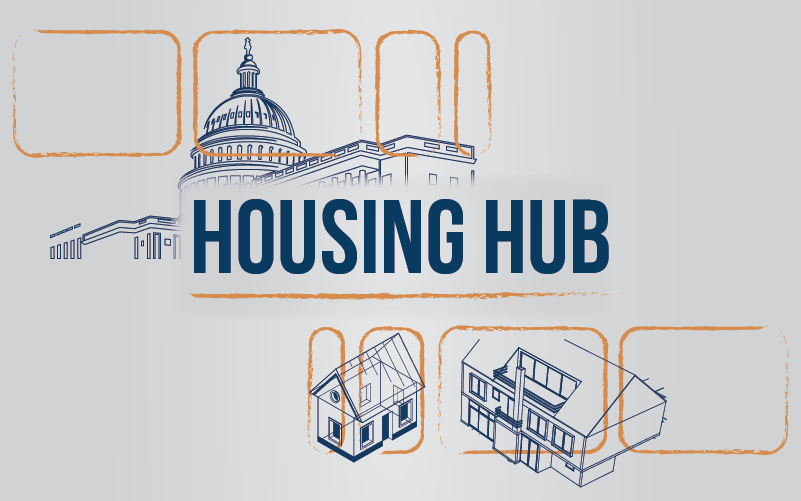Today we celebrate our Dreamers
Celebrating NAHREP familia, cultura, politics, and grassroots action
Que onda mi gente?!
Stories are a critical vehicle for human connection. They are powerful mostly because they make us feel something. Storytelling is an especially powerful tool in advocacy because stories have the ability to put a human emotion and a human face to laws and regulations. As the subject of DACA once again takes center stage, I thought of a young man who embodies the most beautiful aspects of the American Dream. Our NAC Regional Lucy Guzman shared the story of Juan Cruz, a 30 year-old DACA recipient who was brought to this country as a kid and now owns a popular restaurant called the International House of Food in downtown Phoenix, Arizona.
Not only has Juan achieved his dream of being a business owner, but he is a homeowner (used a NAHREP real estate agent of course) and supports his family in the process. Part of his business’ mission is to employ other DACA recipients. The restaurant has become a frequent dining place for elected officials, given its close proximity to City Hall. Like many businesses during COVID-19, Juan has struggled financially. However, despite not being eligible for any government assistance due to his DACA status, he soldiers on thanks to his incredible drive and resilience along with the support of his community. Juan is a clear contributor to the U.S. economy and his community undoubtedly benefits from his participation in it. And like Juan, there are many more stories like that. I’m thinking about Juan today with today’s Supreme Court announcement on DACA.

Big changes happening around DACA that you should care about
The fate of the DACA program has been particularly uncertain for the past few years. Since the Justice Department announced its intention to end the program in 2017, the level of fear and anxiety over the long term prospects of building a life in this country has only increased for DACA recipients. It is significantly more expensive, and risky, for DACA recipients to make investments in their communities through homeownership and education.
In our own industry, DACA recipients can no longer depend on FHA products to buy a home. In higher education, DACA individuals are barred accesses to any federal student aid, and in most states, don’t qualify for state support or in-state tuition. The lack of resources coupled with the fear of being deported at any moment presents a huge opportunity loss for our country as a whole.
But today we celebrate our DREAMERS as the Supreme Court stops the Administration from ending DACA!
I think we all needed a piece of good news in the midst of this pandemic, and everything else going on. I have to be honest, I teared up when I heard the news. This was the best outcome for DACA supporters for sure. However, it is important to note that the Supreme Court based its decision on the basis that “the administration failed to provide an adequate reason to justify ending the DACA program.” This means that for now, participants in the program can continue to renew their temporary protection from deportation and access to work authorizations, but the program is not permanent and it will remain a fragile program unless we do something.
DACA recipients still don’t have access to resources necessary to ensure that they can keep contributing to the economy. This includes access to those noted above, among many others. We must continue to make the case that supporting this young, vibrant population will be critical to the future success of this country that relies on the youth of this workforce.
Ultimately, the time to pass the American Dream and Promise Act is now.
Regardless of the Supreme Court’s decision, a permanent solution for DACA recipients is long overdue. These young people were brought to this country as babies and have known no other home. We must keep putting pressure on the U.S. Senate to pass The American Dream and Promise Act. This bill was passed with bipartisan support in the U.S. House of Representatives last year and there is no reason that can’t happen in the Senate. NAHREP will continue to fight for this legislation until it passes.
HUD Secretary Ben Carson has agreed to reconsider HUD’s decision to stop issuing FHA loans to DACA recipients.
Today’s Supreme Court decision comes at a time when FHA has signaled that they might be open to reevaluating the decision to stop insuring DACA loans. Lenders have been issuing FHA loans to DACA recipients since 2014. However, in 2018 local FHA offices began quietly telling lenders DACA recipients were not eligible. Tons of confusion erupted over this and various HUD officials testified before Congress last year claiming that there was no policy change. What ended up happening, we later realized, is that there was a new interpretation of whether or not DACA recipients were considered as having lawful status, since the program merely deferred deportation and didn’t grant permanent residency. They were deemed to have “legal residency” but not “legal status.”
In the wake of all this confusion, we heard stories of DACA recipients being denied moments before closing on their home, shattering their dreams for homeownership. Fast forward to a few weeks ago, it was revealed that contrary to what HUD officials stated during congressional hearings, there WAS a distinct policy change on the issue. In an exchange last week between Senator Bob Menendez from New Jersey and Secretary Ben Carson in a Senate Banking Committee hearing, Secretary Carson agreed to work with Senator Menendez on finding a solution for DACA. WOHOO! NAHREP has confirmed that HUD is open to reconsidering their decision and they want NAHREP’s input. This is very good news and we will keep you updated on our advocacy campaign around this issue.
Today’s Supreme Court ruling coupled with how politicized DACA and immigration are in a presidential election year might throw everything for a loop. NAHREP is hopeful that HUD will change their decision and we will continue fighting on behalf of Dreamers and homeownership.
Key facts showing why Dreamers are so critical to our economy:
- 5% of Dreamers under 25 and 8% of Dreamers over 25 own their own business.
- 29,000 front-line health care workers are Dreamers, including doctors and nurses.
- 59,900 Dreamers work in grocery stores, wholesale food distribution and agriculture.
- Dreamers own 59,000 homes and are responsible for $613.8 million in annual mortgage payments.
- Repealing the program could cost over $460 billion in economic output over a decade.
- DACA eligible workers contribute $1.4 billion in federal taxes, $2 billion in Social Security taxes, and $470 million in Medicare each year.
Like we’ve said before, immigrants and DACA recipients are essential. We could not be happier for our Dreamers who let out a huge sigh of relief today. We all know them and some of you might even be one. These young people are the embodiment of the American dream, eager to make a mark in this country, the only home most have ever known. Let’s keep speaking up. We will need each and every one of you to help continue the fight on behalf of Dreamers. Stay tuned for more details.
Stay safe mi gente. Los quiero.

About Noerena Limón
Noerena Limón is NAHREP’s Executive Vice President of Public Policy and Industry Relations. Noerena heads the organization’s policy and advocacy efforts on issues ranging from homeownership, housing inventory, credit access and immigration.
Prior to joining NAHREP, Noerena spent six years at the Consumer Financial Protection Bureau (CFPB) and served as a political appointee under President Obama in the White House Office of Political Affairs.



